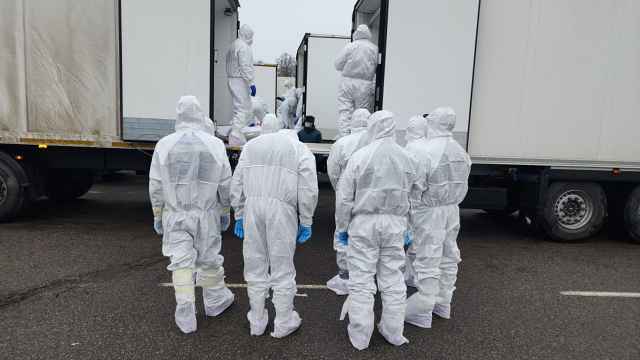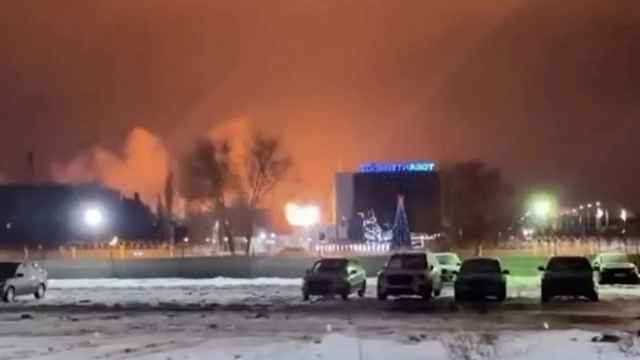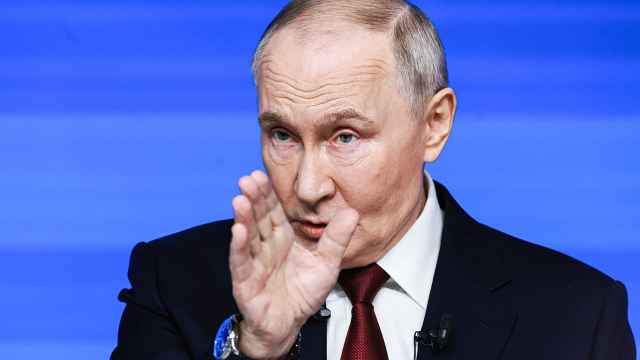Russian entry into the World Trade Organization, expected as soon as 2011, should boost its appeal to investors but is unlikely to lead to big new cuts in tariffs, the World Bank's lead economist for Russia said.
Russia has been seeking WTO membership since 1993 and its accession process has gained momentum after a June summit in Washington.
"That is the expectation right now [that Russia will join next year], and it seems to be not unrealistic," Zeljko Bogetic said in an interview. "There is obviously renewed political momentum. … But we … would want a few more steps before we could declare victory."
With gross domestic product of $1.2 trillion, Russia is by far the largest economy outside the 153-member WTO. Its membership talks are due to resume at the start of December.
Moscow is no stranger to stimulating the economy with subsidies — such as in the agricultural sector — or with preferential taxes for domestically produced goods like cars.
But Bogetic cautioned against expecting a big reduction in tariffs as a result of WTO membership.
"The tariff levels in Russia have already been adjusted from the old levels significantly, even considering the crisis. So any gains will be limited in that sense, in my view," he said.
The main benefits — both for Russia and for the world — will come from greater predictability, which should aid plans by President Dmitry Medvedev and Prime Minister Vladimir Putin to attract more foreign investment into the country.
Russia — which banned grain exports earlier this year — would have to act under WTO rules once a member, reducing the scope for one-sided, unexpected measures on trade.
"The gains will be more in locking in the institutional environment and the whole trading system that Russia will have," Bogetic said.
That "will enhance the predictability of foreign trade for domestic and foreign investors and, by doing so, make Russia more attractive and more predictable for doing business."
Russia is seeking to reduce its economic dependence on natural resources and says WTO membership will improve access to global markets for its goods.
The World Bank has estimated WTO entry could increase the size of the Russian economy by as much as 3.3 percent in the medium term and 11 percent in the long term.
It has also said it expects Russian import tariffs would fall from 14 percent on average to 8 percent after entry.
Russia's bid to join the WTO is the longest-running in history, with issues over duties and tariffs on goods from meat to timber, and at times hostile relations with Europe and the United States having hampered past negotiations.
The White House said Monday that the United States had resolved its issues with Moscow on Russia's entry, however, and would work with international partners to move the membership process forward.
A Message from The Moscow Times:
Dear readers,
We are facing unprecedented challenges. Russia's Prosecutor General's Office has designated The Moscow Times as an "undesirable" organization, criminalizing our work and putting our staff at risk of prosecution. This follows our earlier unjust labeling as a "foreign agent."
These actions are direct attempts to silence independent journalism in Russia. The authorities claim our work "discredits the decisions of the Russian leadership." We see things differently: we strive to provide accurate, unbiased reporting on Russia.
We, the journalists of The Moscow Times, refuse to be silenced. But to continue our work, we need your help.
Your support, no matter how small, makes a world of difference. If you can, please support us monthly starting from just $2. It's quick to set up, and every contribution makes a significant impact.
By supporting The Moscow Times, you're defending open, independent journalism in the face of repression. Thank you for standing with us.
Remind me later.





